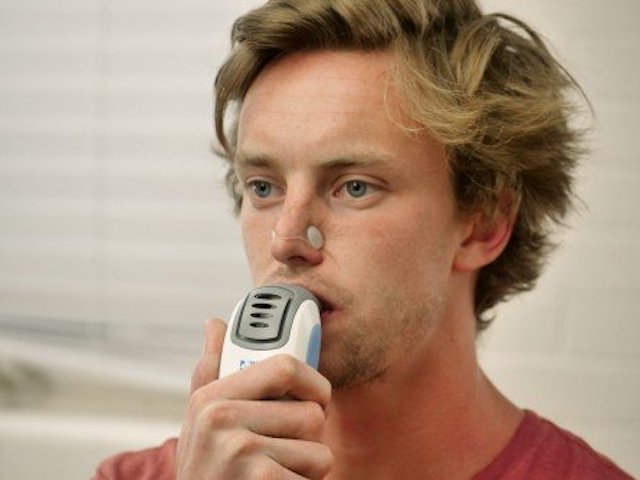
In a new study, researchers found an exercise called Inspiratory Muscle Strength Training, or IMST, could help lower blood pressure and improve artery health.
The research was conducted by University of Colorado Boulder researchers.
IMST was created in the 1980s as a way to help critically ill people increase body strength.
In the exercise, people breathe in vigorously through a hand-held device. The device is an inspiratory muscle trainer and provides resistance. It is like sucking hard through a straw which sucks back.
The exercise was first used in people with lung disease. Patients performed a 30-minute, low-resistance training daily to improve their lung capacity.
One recent showed that IMST could help people with obstructive sleep apnea. In this sleep problem, people have weak breathing muscles and cannot sleep well.
That study found that IMST could not only reduce sleep apnea symptoms but also decrease systolic blood pressure by 12 millimeters of mercury.
The blood-lowering effect was stronger than many aerobic exercises and even blood pressure drugs.
It is known that high blood pressure is the risk factor for many conditions, including heart attack, stroke, kidney diseases, and cognitive decline.
In the current study, the team examined how IMST may help lower blood pressure in mid-life adults.
Their preliminary data showed strong drops in blood pressure and better functions in large-artery in people who performed IMST.
In addition, these participants also showed better cognitive and memory. Their exercise endurance and heart rate during exercise were improved too.
The researchers explain that when people improve their respiratory muscle functions, they don’t need as much blood to work. The blood can go to legs so people could exercise longer.
Further research is needed to confirm the findings.
The team suggests that people who are interested in IMST should take with their doctor first.
The leader of the study is Professor Doug Seals, director of the Integrative Physiology of Aging Laboratory.
Copyright © 2019 Knowridge Science Report. All rights reserved.



